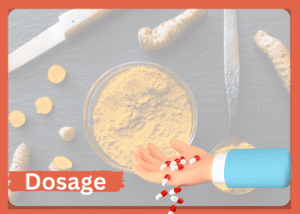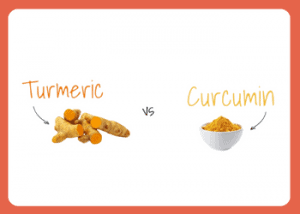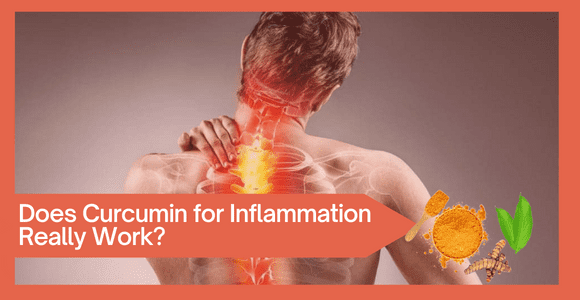Turmeric has been a treasured part of traditional medicinal practices for centuries, due to its active ingredient curcumin, and its remarkable anti-inflammatory and antioxidant effects.
In the past few years, these same qualities have made curcumin supplements extremely popular as an all-natural way to reduce inflammation and improve overall health.
Despite being widely used and marketed for its medicinal qualities, the scientific proof of curcumin’s ability to reduce inflammation is still inconclusive.
While some studies have seen positive strides with the use of curcumin in treating inflammation, others are unable to corroborate these results.
In this article, we will evaluate the current evidence on using curcumin as a means of reducing inflammation and decide if taking it really works or not.
Table of Contents
What is Curcumin?
Curcumin, a natural yellow pigment derived from turmeric – an everyday Indian cooking spice – is quite the mighty antioxidant and anti-inflammatory.
This captivating ingredient has been used in traditional medicine for centuries due to its abundant health benefits: it’s known to reduce inflammation, sharpen brain function and even protect against various ailments.
20 Benefits of Turmeric
Sure, here are 20 benefits of turmeric with a brief description for each:
- Anti-inflammatory effects: Curcumin, the active ingredient in turmeric, curcumin is an inflammation blocker.
- Antioxidant properties: It is a rich source of antioxidants, which help neutralize harmful free radicals and protect cells from damage.
- May improve brain function: Studies have shown that turmeric may improve memory and mood, and protect against age-related declines in brain function.
- May reduce the risk of heart disease: Curcumin may help reduce cholesterol levels, prevent blood clots, and improve the function of the endothelium (the inner lining of blood vessels).
- May help in treating depression: Some evidence suggests that turmeric may have an antidepressant effect, although more research is needed.
- May lower the risk of cancer: It has been shown to inhibit the growth of various types of cancer cells and reduce the spread of cancer.
- May relieve pain and stiffness in joints: It is often used to treat joint pain. It is rich in polyphenols and blocks one of the metabolic pathways leading to inflammation, reducing the effects of pathologies such as osteoarthritis and metabolic syndrome.
- May improve digestion: Turmeric has been used for centuries to improve digestive health and may help alleviate symptoms of indigestion, bloating, and gas.
- May help regulate blood sugar levels: It has been shown to improve insulin sensitivity and reduce blood sugar levels in people with type 2 diabetes.
- May support liver function: It may help protect the liver from damage and improve its ability to remove toxins from the body.
- May improve skin health: It has been used topically to treat a variety of skin conditions, and may also have anti-aging effects by reducing oxidative stress and inflammation.
- May help regulate cholesterol levels: May help lower levels of “bad” LDL cholesterol and increase levels of “good” HDL cholesterol.
- May have anti-aging effects: The antioxidant and anti-inflammatory mechanism of turmeric may help reduce signs of aging and protect against age-related diseases.
- May boost immunity: It helps boost the immune system and protect against infections and illnesses.
- May improve symptoms of PCOS: Some evidence suggests that turmeric may help improve symptoms of polycystic ovary syndrome (PCOS), including insulin resistance and hirsutism.
- May reduce menstrual pain: It has been used to treat menstrual pain and discomfort, and may also have a balancing effect on hormones.
- May support weight loss: Some research suggests that turmeric may help regulate metabolism and reduce inflammation in fat cells, promoting weight loss.
- May protect against neurodegenerative diseases: It has been shown to have neuroprotective effects and may help protect against diseases such as Alzheimer’s and Parkinson’s.
- May have anti-inflammatory effects on the gut: Curcumin supplement may help reduce inflammation in the gut, which can alleviate symptoms of conditions like inflammatory bowel disease (IBD).
- May improve athletic performance: Some evidence suggests that turmeric may help improve athletic performance by reducing muscle damage and improving recovery after exercise.
10 Serious Side Effects of Turmeric
Here are 10 side effects of turmeric:
| Side Effect | Description |
|---|---|
| Stomach upset | While taking large doses of turmeric can be beneficial to your health, it may lead to uncomfortable side effects such as abdominal pain, bloating, flatulence, and diarrhea. |
| Increased risk of bleeding | May potentially increase the danger of internal bleeding when taken with blood-thinning medications, like warfarin or aspirin. Thus it’s essential to consult your doctor before consuming turmeric if you take any such medication regularly. |
| Risk of liver damage | Caution should be exercised when taking high doses of turmeric supplements, as they have been associated with liver damage in certain individuals. |
| Risk of kidney stones | Consuming too much turmeric can lead to the production of calcium oxalate stones in the kidneys, so be sure to enjoy it in moderation. |
| Risk of interaction with other medications | May interact with certain medications, including blood-thinning drugs, nonsteroidal anti-inflammatory drugs (NSAIDs), and chemotherapy drugs. |
| Risk of pregnancy and breastfeeding | High doses may not be safe during pregnancy and breastfeeding. |
| Risk of low blood sugar levels | May lower blood sugar levels, which may be a concern for people with diabetes. |
| Risk of hormonal imbalances | Can disrupt your hormones, which might be a huge concern for individuals who are already dealing with hormonal imbalances or conditions like endometriosis. Thus, it is essential to assess the potential risks of taking turmeric before incorporating it into your diet. |
| Risk of skin irritation | Topically applying turmeric could irritate the skin, particularly for those who have sensitive complexions. |
| Risk of allergic reactions | Some individuals may suffer from an allergic reaction, resulting in symptoms including irritation, redness, and swelling. |
It is noteworthy that these potential side effects are rarely experienced, and the chances of experiencing them may be dependent on variables such as dosage or frequency of turmeric intake. Before taking any kind of new supplement or significantly altering diet plans or medication regimens, it’s constantly best to consult with a doctor for medical guidance.
Curcumin Anti Inflammatory Dosage. How to Take Turmeric for Inflammation?
Depending on age, weight, and health condition, the ideal dosage of curcumin for achieving anti-inflammatory effects may differ. Generally, however, taking a daily dose of between 500mg to 1000mg appears secure for most individuals.
Nevertheless, it is highly recommended that you consult a healthcare expert before beginning any new supplement program. They can help to determine the correct dosage for your specific needs and objectives.
 For inflammation, selecting a top-notch turmeric supplement with standardized curcumin is important.
For inflammation, selecting a top-notch turmeric supplement with standardized curcumin is important.
In addition, since curcumin alone isn’t that easily absorbed into the body, it’s typically blended with ingredients such as black pepper extract to enhance its bioavailability.
While turmeric has been utilized as a spice and medicine for many centuries, more exploration is necessary to thoroughly comprehend its impacts on inflammation. It’s essential to keep this in mind.
It is always prudent to be mindful when consuming any supplement, particularly turmeric. To ensure its safety and effectiveness, it’s best to consult with a medical professional prior to use, especially if you have existing health issues or are taking other medications.
Best Time of Day to Take Turmeric for Inflammation
The best time of day to take turmeric for inflammation can vary depending on individual preferences and lifestyle.
However, here are a few general guidelines that may help:
- With food: Taking turmeric with a meal, particularly one that contains fat, can help improve its absorption and maximize its anti-inflammatory effects.
- Morning: Taking turmeric in the morning can help provide a long-lasting benefit throughout the day.
- Before bed: Taking turmeric before bed can help reduce inflammation overnight, which may improve sleep quality and overall health.
It’s important to note that the most important factor in determining the best time of day to take turmeric is consistency. Taking turmeric at the same time each day can help ensure that its anti-inflammatory effects are sustained over time.
Again, it’s always best to speak with a healthcare professional before starting any new supplement regimen, as they can help determine the most appropriate time of day and dosage for your individual needs.
Curcumin vs Turmeric
Although closely related, curcumin and turmeric are not the same. Curcumin is a natural anti-inflammatory drug. Researchers have conducted numerous preclinical studies which strongly suggest its effectiveness in treating arthritis. Clinical trials focused on the treatment of knee osteoarthritis further emphasize this notion.
Curcumin is a natural anti-inflammatory compound – this spice found in many recipes as well as traditional medicines – that may be responsible for its remarkable health benefits such as anti-inflammatory and antioxidant properties.
 Turmeric is a vibrant, flavorful spice derived from turmeric root. The secret to its health-promoting qualities lies in various compounds – curcumin among them – that pack significant benefits for your well-being.
Turmeric is a vibrant, flavorful spice derived from turmeric root. The secret to its health-promoting qualities lies in various compounds – curcumin among them – that pack significant benefits for your well-being.
Even when used as an ingredient in culinary dishes, due to its low amounts it will not likely make a major difference in your overall health status.
Curcumin has been shown to inhibit mediators of the inflammatory response, including cytokines, chemokines, adhesion molecules, growth factors, and enzymes like cyclooxygenase (COX), lipoxygenase (LOX), and inducible nitric oxide synthase (iNOS).
In comparison curcumin vs turmeric, curcumin supplements provide a higher concentration of the active agent than what is found in turmeric. These dietary aids are intended to improve specific health benefits and are generally used for conditions like inflammation, pain, and oxidative stress relief.
Despite its potential health benefits, more research is essential to fully understand the effects of turmeric and curcumin, as well as recognize the most effective doses for maximum benefit.
As with any supplement, it’s important to be cautious and speak with a healthcare professional before using turmeric or curcumin, especially if you have any underlying health conditions or are taking any medications.
Turmeric vs Curcumin for Inflammation
Studies have indicated that both turmeric and curcumin possess anti-inflammatory properties, with curcumin being the more powerful of the two.
Curcumin is believed to reduce inflammation by interfering in the production of inflammatory compounds within our bodies.
Frequently Asked Questions
Is Turmeric or Curcumin Better for Inflammation?
Although there is no definitive answer as to which supplement yields the most health benefits — curcumin or turmeric — research suggests that consuming more concentrated forms of turmeric such as extracted versions, along with supplements solely composed of curcumin may be most beneficial.
Both turmeric and curcumin can reduce joint inflammation, Cholesterol, and blood sugar levels, as well as malignant tumors, fungal infestations, and bacterial colonies can all be managed.
Who Should Not Use Curcumin?
People who are on blood-thinning medication, such as warfarin (Coumadin), clopidogrel (Plavix), and aspirin, it is typically discouraged to take curcumin or turmeric supplements while using the blood-thinning medication.
How Quickly Does Curcumin Reduce Inflammation?
A study conducted on participants revealed that their joint discomfort was alleviated after taking a daily dose of two grams of turmeric over the span of six weeks. In another experiment, one-gram doses were administered for eight to twelve weeks and similar improvements were observed in people’s symptoms.
Does Curcumin Reduce Inflammation?
Curcumin has anti-inflammatory properties that make it an effective remedy for a wide range of health conditions, including reducing pain and improving mobility in individuals with osteoarthritis.
How Do You Use Turmeric for Arthritis?
Using turmeric for arthritis involves incorporating this natural spice into your diet and considering its potential as a complementary treatment. Turmeric contains a bioactive compound called curcumin, which has shown anti-inflammatory and antioxidant properties that may benefit individuals with arthritis. Here’s how to use turmeric for arthritis:
- Dietary Turmeric: The simplest way to include turmeric in your routine is by adding it to your daily meals. You can sprinkle turmeric powder on vegetables, rice, or meat dishes. A common preparation is turmeric tea or “golden milk.” To make it, mix turmeric powder with warm milk and a pinch of black pepper (which enhances curcumin absorption). However, it’s important to note that the curcumin content in turmeric is relatively low, and its bioavailability can be limited. For this reason, many people opt for curcumin supplements, which provide a concentrated dose.
- Curcumin Supplements: Curcumin supplements, available in various forms (capsules, tablets, or powders), can provide a standardized and more potent dose of curcumin compared to dietary turmeric. Consult with a healthcare provider before starting any supplement regimen, as they can help determine the appropriate dosage and ensure it doesn’t interact with other medications.
- Topical Turmeric: Some individuals with arthritis find relief by applying turmeric paste topically to the affected joints. To create a paste, mix turmeric powder with water to form a thick consistency. Gently rub this paste onto the sore area and let it sit for about 20 minutes before rinsing off. Be cautious, as turmeric may stain the skin temporarily.
- Combination with Other Supplements: Curcumin’s effects may be enhanced when combined with other supplements like ginger, which also has anti-inflammatory properties. Consult a healthcare provider before combining supplements, as interactions or side effects can occur.
- Incorporate Turmeric-Rich Foods: In addition to turmeric, other foods like ginger, garlic, and green tea have anti-inflammatory properties. Including these in your diet can complement the potential benefits of turmeric for arthritis.
- Monitor and Adjust: Keep track of how turmeric affects your arthritis symptoms and overall well-being. Results may vary from person to person. If you experience any adverse effects or no improvement, consult with a healthcare provider to explore other treatment options.
It’s crucial to remember that while turmeric and curcumin may offer relief to some arthritis sufferers, they should not replace prescribed medications or medical advice. Always consult with a healthcare professional before making significant dietary or supplement changes, especially if you have existing health conditions or are taking other medications. Arthritis management often requires a multifaceted approach, which may include medications, physical therapy, lifestyle modifications, and dietary considerations.
Conclusion. So, How Effective is Curcumin for Inflammation
Studies have provided promising evidence that curcumin can help reduce inflammation. It has been observed to lower levels of inflammatory compounds in the body and could yield positive outcomes when it comes to treating a variety of conditions associated with inflammation, such as arthritis or irritable bowel disease.
Though more research is necessary for us to gain a better understanding of its effects, including determining ideal doses and forms, there’s no doubt that adding this natural remedy to your health regimen will be beneficial for you!
Ultimately, although curcumin may be beneficial for decreasing inflammation, it’s essential to proceed with caution and always consult a doctor before taking any form of the extract.
This is especially important if you have pre-existing medical issues or are ingesting other medications at the same time.
